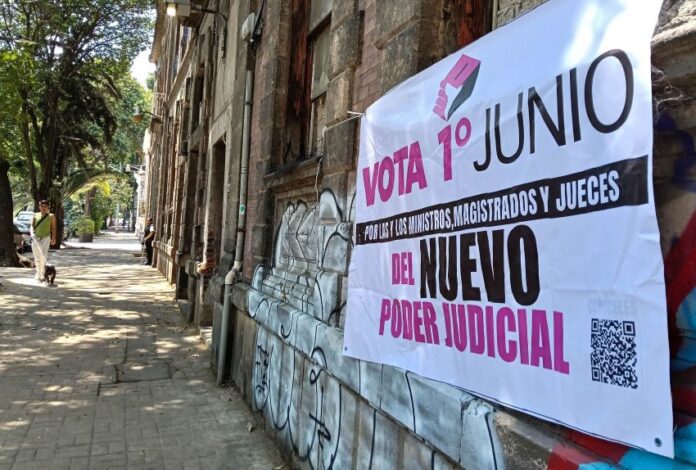Civil society organizations on Wednesday filed complaints against 11 judicial election candidates, alleging that they have links to organized crime or the Guadalajara-headquartered La Luz del Mundo religious sect, whose leader is a convicted sex offender.
Miguel Alfonso Meza, a lawyer and president of the organization Defensorxs, filed a total of four complaints with the National Electoral Institute (INE). He was accompanied by representatives of the organizations Laboratorio Electoral and Politiklab.
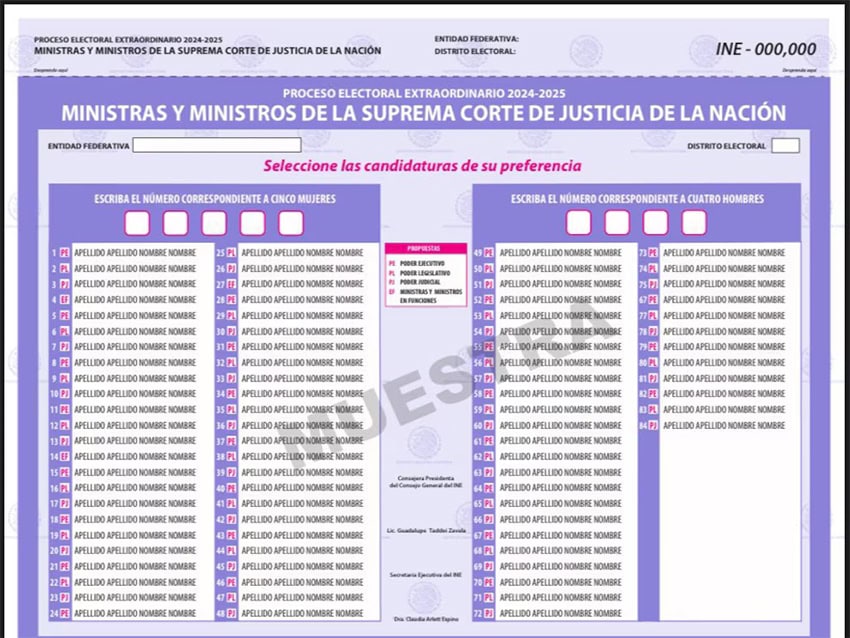
The three non-government organizations want the INE to annul the candidacies of the 11 people with alleged links to organized crime or La Luz del Mundo church, but the president of the electoral authority countered that only the Federal Electoral Tribunal can make such a ruling. The ballots for the elections — more than 601 million of them — have already been printed and the INE has begun distributing them.
The filing of the complaints came a month before Mexicans will elect almost 900 judges, including nine Supreme Court justices.
The June 1 elections — Mexico’s first ever judicial elections — are taking place thanks to the Congress’ approval of a controversial judicial reform last year.
One of the various criticisms of staging judicial elections is that drug cartels and other organized crime groups could effectively install judges by pressuring or coercing citizens to vote for their preferred candidates.
Who are the 11 accused candidates?
The three NGOs allege that four judicial election candidates have links to organized crime. Those candidates are:
- Francisco Herrera Franco, a former regional prosecutor in Michoacán. He is being investigated in connection with the murder of two journalists in Michoacán, the state in which he hopes to be elected as a judge.
- Jesús Humberto Padilla Briones, aspirant to a judgeship in Nuevo León who was arrested in 2023 in possession of a firearm and narcotics.
- Fernando Escamilla Villarreal, aspirant to a prison system judgeship in Nuevo León. As a lawyer he has represented criminal leaders such as Zetas capo Miguel Ángel Treviño Morales, who Mexico sent to the United States in February along with 28 other cartel figures. Escamilla was convicted and sentenced of illegal possession of a firearm, according to Defensorxs.
- Andrés Montoya García, aspirant to a position of magistrate in Sonora. His brother is a former police officer accused of the 2005 murder of a journalist.
The NGOs allege that seven other judicial election candidates have links to La Luz del Mundo church — which Meza called a “political-criminal sect” — and/or the church’s leader Naasón Joaquín García, who in 2022 was sentenced in a California court to 16 years and eight months in prison for sexually abusing three girls between 2015 and 2018 in Los Angeles county.
García remains the official leader, or “Apostle,” of La Luz del Mundo (Light of the World) church despite his imprisonment.
The candidates with allegedly disqualifying links to La Luz del Mundo are:
- Madián Sinaí Menchaca Sierra, aspirant to a judgeship in Jalisco. She is the daughter of Nicolás Menchaca, a Luz del Mundo bishop who assumed the day-to-day leadership of the church after the arrest of García. Nicolás Menchaca is a “key figure in the trafficking and corruption network of the evangelical church,” the El País newspaper reported.
- Karina Sánchez Ruiz, candidate for a federal judgeship in Oaxaca who served as a federal deputy between 2015 and 2018. Meza said that when Sánchez was a deputy, she “publicly congratulated” García on his birthday.
- Eluzai Rafael Aguilar, aspirant to a district judge position in Jalisco.
- Job Daniel Wong Ibarra, aspirant to a magistrate position in Jalisco. He has reportedly served as a Luz del Mundo minister. The Mexican Constitution prohibits religious leaders from occupying publicly elected positions.
- Cesiah León Rocha, aspirant to a judgeship in Jalisco.
- Betzabeth Almazán Morales, aspirant to a judgeship in Jalisco. Almazán wrote newspaper columns in defense of García, even after his conviction in the United States, according to news website Animal Político.
- Cinthia Guadalupe Teniente Mendoza, candidate to a position of magistrate in Guanajuato. She is currently the mayor of the municipality of Villagrán, Guanajuato. Her husband is Morena party Senator Emmanuel Reyes, reportedly a supporter of La Luz del Mundo church and an attendee at a Mexico City tribute to García.
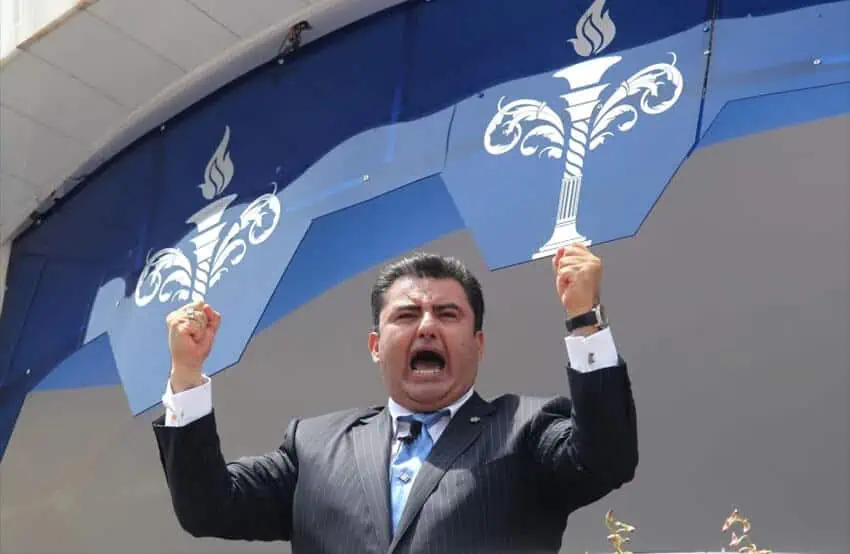
Meza asserted that these seven candidates “aren’t just members” of the church, but also “linked” to criminal activities it engages in, including human trafficking, abuse of trafficking victims and the promotion of child pornography.
Complaints filed after Senate president raises concerns about some judicial election candidates
Meza told reporters outside INE offices in Mexico City that he and other NGO representatives, in filing complaints against “these risky candidates,” were taking President Claudia Sheinbaum and ruling party Senator and Senate President Gerardo Fernández Noroña “at their word.”
“And also the INE because it already opened a special procedure so that candidates can be denounced until May 12,” he said.
“… As an organization we don’t investigative powers,” said the Defensorxs president.
“We can access information that victims provide to us and journalistic articles, but it is the INE who has the power to ask the Attorney General’s Office for an investigation,” Meza said.
The filing of the complaints came after Senator Fernández last month said that some candidates vying to win judgeships at the June 1 judicial elections might not be suitable contenders because they may have criminal links.
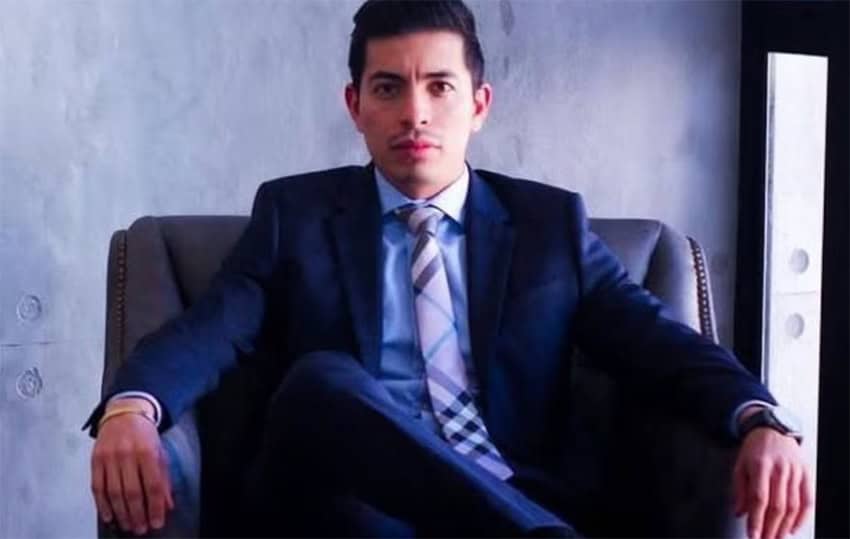
Sheinbaum subsequently said that from her “particular point of view,” a candidate “could” be disqualified if they are found to be an unsuitable or ineligible contender for a judgeship, even though they’re “already on the ballot.”
“But all the proof would have to be presented, right?” she added.
At her April 23 press conference, the president stressed that the Federal Electoral Tribunal would have the final say on the suitability of candidates.
If the 11 candidates against which complaints were filed with the INE aren’t disqualified from contesting the upcoming judicial elections, the complainants are asking that their victories be nullified, if they in fact prevail in their June 1 contests.
Arturo Espinoza, a member of Defensorxs, accused the candidate evaluation committees of failing to properly screen aspirants to judgeships.
“We set out to do the work they didn’t do, to look for the evidence they didn’t look for even though it was clearly there before their eyes,” he said.
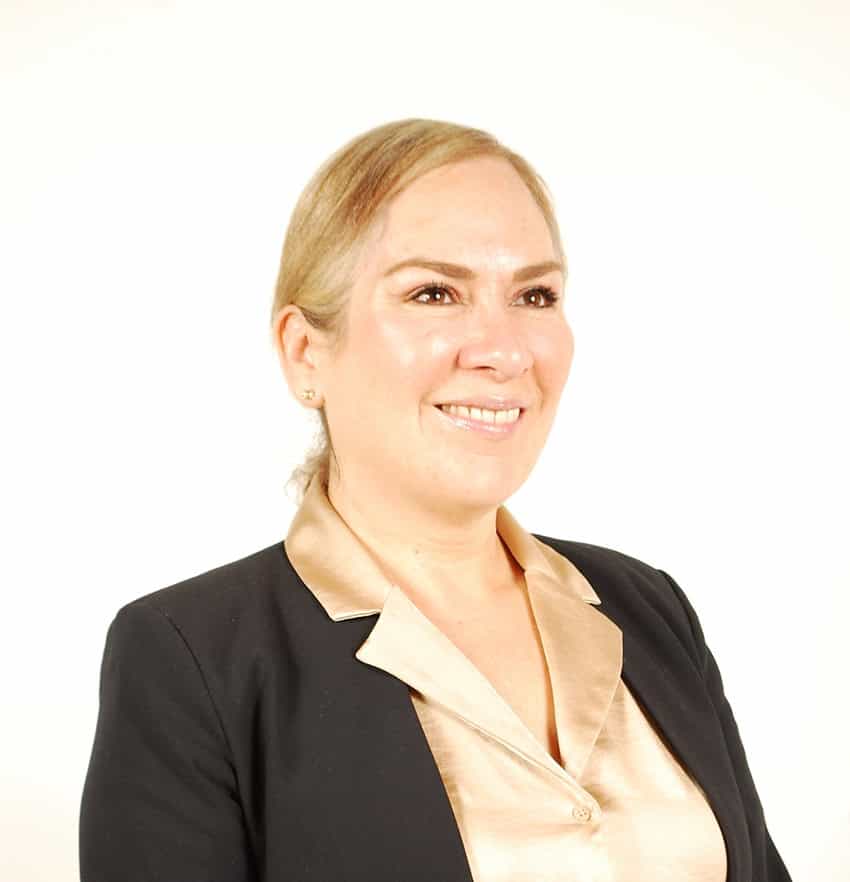
Each of the three branches of government — the executive, the legislative and the judicial — had their own candidate selection committees.
In addition to the 11 candidates against which complaints were filed on Wednesday, other aspirants to judgeships have faced questions about their candidacies, including Silvia Delgado, who was a lawyer for convicted drug lord Joaquín “El Chapo” Guzmán while he was imprisoned in Ciudad Juárez, Chihuahua, last decade.
The NGOs said that they could file complaints against 40 other judicial election candidates.
The candidacy of César Gutiérrez Priego, an aspirant to one of the nine Supreme Court justice positions, has also been questioned. He is the son of former military general and “anti-drugs czar” Jesús Guitiérrez Rebollo, who was sentenced to 40 years in prison in the late 1990s for links to organized crime. Gutiérrez Rebollo died in 2013.
The Federal Electoral Tribunal ordered the INE to assess a request for the cancellation of Gutiérrez Priego’s candidacy on the grounds that he doesn’t have a “good reputation.” Having a “good reputation” is one of the criterion aspirants to judgeships had to meet to qualify to contest the judicial elections.
INE can’t annul candidacies, says electoral authority chief
INE President Guadalupe Taddei said Wednesday that the electoral authority doesn’t have the power to annul judicial election candidacies that have already been approved, including that of Gutiérrez Priego.
She said that cases against individual candidates should instead be referred to the Federal Electoral Tribunal “in order to have a ruling” on whether an aspirant is eligible to stand in the elections or not. The INE president said it was also up to law enforcement authorities to investigate candidates accused of wrongdoing.
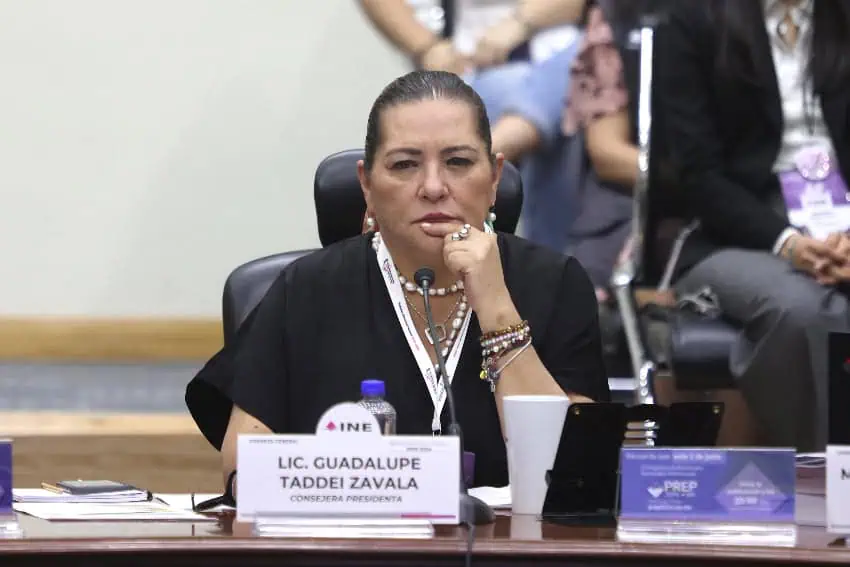
Taddei highlighted that during the candidate selection process, aspirants had to submit letters pledging that they hadn’t committed a crime or been accused of committing one.
While she said the INE can’t invalidate candidacies, the electoral authority can annul victories in the judicial elections if there is sufficient reason for it to do so. Those reasons include having been convicted of a crime, being subject to an arrest warrant and being in arrears for child support payments.
The electoral authority will have a period of two weeks after the June 1 elections to decide whether to annul any individual triumphs, as the official validation of results will be made on June 15.
With reports from Reforma, El Universal, Vanguardia, Infobae, El País, Animal Político, Eje Central and La Jornada
